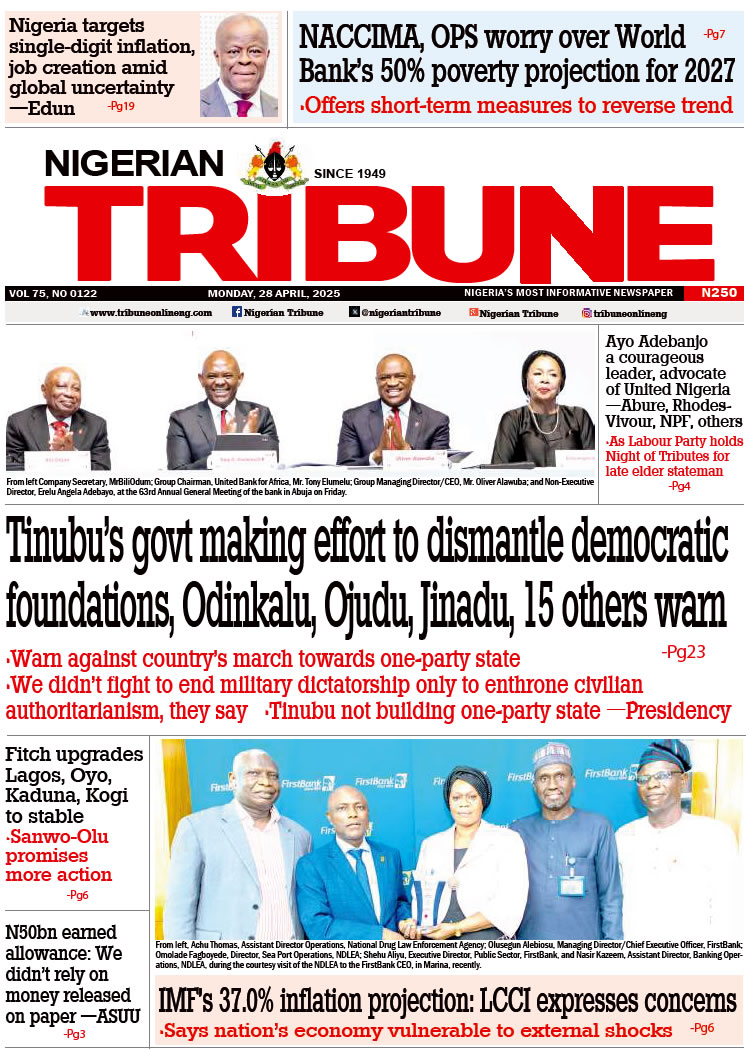THE failure of past governments to frontally combat corruption has almost elevated the menace to statecraft. Corruption is so endemic in the country that it is difficult to single out a sector or segment that is not tainted by it. The situation is so horrible that many who seek public offices derive their motivation from the corrupt enrichment those offices offer, not any intention to make the country better. The cost of corruption to the country is evident in brain drain, dilapidated hospital structures, failed roads, near comatose education system, high rate of unemployment, inability of state and local governments to pay salaries, swelling population of the poor and environmental degradation, among others. Hence, the determination of the current government to wage war against corruption is a welcome development. It is a war that every well-meaning Nigerian should join to wrest the country from the jaws of this monster.
The leadership of the Economic and Financial Crimes Commission (EFCC) has, so far, been exemplary in operations, conduct and character. The operations of the agency have given Nigerians hope that the nation could really be saved from the jaws of graft, greed and all forms of economic malfeasance. However, the agency should shame its critics by conducting its businesses strictly with respect to the laws of the land. Whatever is done in contravention of the constitution, no matter how well intentioned, is unconstitutional.
To make a success of its campaign against corruption, the government must deliberately take the battle to the doors of every corrupt Nigerian. The government is currently probing campaign funds. We commend the steps taken so far on this and call for an extension of the battle to all other political parties. When campaign funding is made right in the national politics, the end product will definitely serve the nation better. There are nagging questions that must be answered. Who are the people that raised the funds and how did they come about the huge resources deployed to the campaigns? Questions should also be asked about how the funds were managed and by whom.
If corruption transcends political parties, the government should also beam its searchlight beyond them to bring to justice those who are responsible for bringing the country to its knees because of their corrupt activities. Indeed, the civil service is reputed to be the bastion of corruption in the country, and should be interrogated by the administration. To disabuse the minds of those who think the government is one-sided in the fight, therefore, it should act on all the petitions filed by aggrieved Nigerians, irrespective of the political party involved.
However, as critical and germane as the war against corruption is to the reinvigoration of the nation, there is a concern that the government is selective in this combat. To critics, the war comes across to many Nigerians as a device to decimate, weaken and silence the opposition. We however note that the EFCC and other anti-graft agencies have also beamed their searchlight on members of the ruling party, even though the preponderance of ongoing cases are those of opposition party members.
The government should realize that selective justice ensures no good. It breeds contempt for the system by those who hold the wrong end of the stick but emboldens the warped to be more daring in their corrupt practices, knowing there is a loophole which could be explored to beat justice. If the body language of the government suggests to the people that all they need to do to escape investigation and prosecution is to be on the side of government of the day, many of those who milked and bilked the nation dry will align with the ruling party with the intention of protecting their ill-gotten wealth. With that, corruption grows stronger while both the country and the war against corruption are enfeebled.
The foregoing notwithstanding, the government also needs to up its game and understand that fighting corruption with raw force is no longer fashionable. It must deploy technologies which make it extremely difficult for the corrupt-minded to carry out their intention. It is always better to prevent people from depleting the people’s patrimony than trying to recoup same from them after the malfeasance has been committed.
That, coupled with the determination of the government to bring to book every corrupt person irrespective of their affiliation, is what makes the anti-corruption war winnable.





